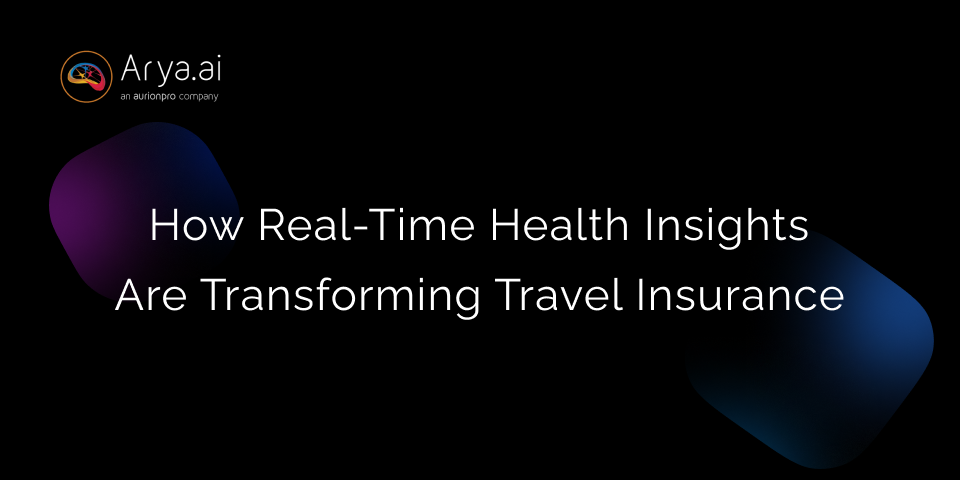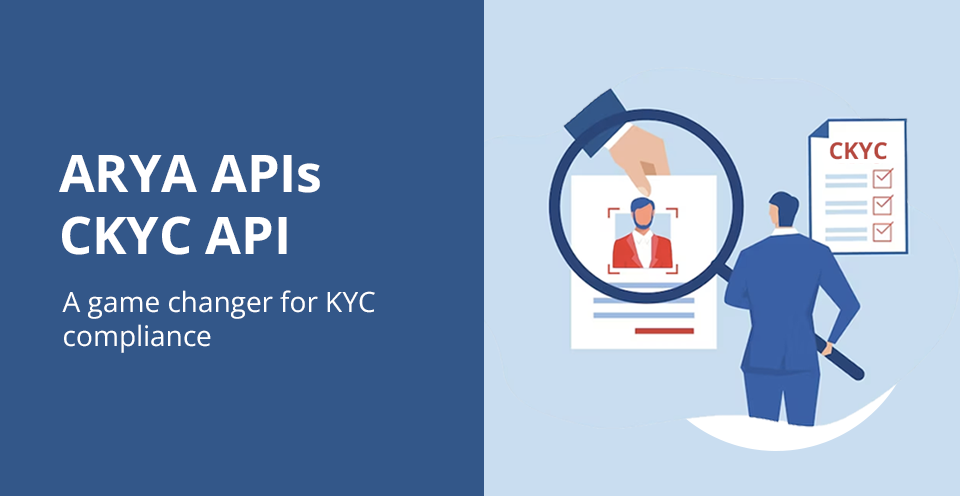In 2022, the travel insurance market was valued at $16.8 billion on a global scale. It is projected to grow at a CAGR of 20.1%, so by the end of 2032, the industry will be worth a whopping $106.8 billion.
This staggering growth means that more and more people are looking for comprehensive travel coverage to insure their journeys. Traditionally, health checks for travel insurance involved manual data entry and subjective interpretation, both of which are time-consuming and prone to errors.
These are now being replaced by AI-driven solutions offering precision, speed, and personalization. AI-powered health checks leverage advanced technologies like deep learning and natural language processing to analyze health data from multiple sources.
AI in insurance is revolutionizing the industry by enhancing risk assessment, fraud detection, and personalized policy recommendations.
In this blog, we will explore how AI in insurance is revolutionizing travel insurance, the technologies involved, real-world applications, and the numerous benefits they bring to both insurers and travellers.
What Are AI-Powered Health Checks?
AI in insurance has introduced AI-powered health checks, a revolutionary technology transforming travel insurance. They use artificial intelligence algorithms to analyze a customer's health data and assess their risk profile for travel-related medical issues that they may have. This allows insurers to offer more accurate and personalized coverage while making the application process easier for customers.
How do AI health checks work?
1. Applicants answer a series of health-related questions through an online form. These questions may inquire about pre-existing medical conditions, medications, lifestyle habits, and travel destinations.
2. Integration with wearable devices or health apps (with user consent) to access additional medical data.
💡Pro Tip- Insurers can utilize Health Vitals Monitor to access customers' additional health information, enabling precise health assessments in real-time.
3. AI algorithms analyze the collected data points to generate a personalized health risk score. This score takes into account various factors, like medical history, medications, lifestyle habits, and travel destinations.
How AI Helps Analyze Health Data From Various Sources?
AI-powered health checks rely on a variety of data inputs to generate comprehensive health assessments. Here’s how different sources contribute to this process:
1. Wearables
Devices like Fitbits, Apple Watches, and other health trackers continuously collect data on vital signs, physical activity, and sleep patterns. AI algorithms analyze this data to identify trends and potential health issues, showcasing the power of AI in insurance.
2. Smartphone-Based Health Scans
Travelers can perform quick health scans using smartphone cameras to measure vital signs like heart rate, blood pressure, and oxygen levels. AI analyzes this data to detect any deviations from normal levels, prompting travellers to take appropriate actions.
3. Electronic Health Records (EHRs)
EHRs contain a wealth of information about an individual's medical history, including past diagnoses, treatments, and medication records. NLP extracts relevant data from EHRs, creating a detailed and accurate health profile. This helps insurers understand pre-existing conditions and ongoing health risks.
4. Genetic Data
AI can analyze genetic data to identify predispositions to certain conditions, such as cardiovascular diseases or diabetes. This information is invaluable for insurers when assessing long-term risks and personalizing insurance plans to mitigate these risks.
5. Patient-Reported Outcomes
Surveys and self-reported health data provide additional context that might not be captured through clinical records alone. AI systems can process this qualitative data, offering insights into symptoms, lifestyle factors, and other aspects of health that impact overall risk assessment.
How AI Helps Navigate Health Challenges On the Go?
AI in health insurance addresses the unique challenges of traveling with a chronic disease or managing mental wellness abroad. Traditional travel insurance often falls short of addressing these specific needs, leaving travelers with gaps in coverage and support. With AI health monitoring, tracking and addressing these challenges is now possible.
Traveling with a Chronic Disease
Individuals with chronic diseases face additional complexities when venturing abroad, requiring specialized care and support. Conventional insurance plans may not always provide the flexibility to accommodate ongoing health requirements. AI can play a crucial role in simplifying overseas chronic disease management by offering:
- Real-Time Health Data Sharing: AI-powered systems can integrate with wearable devices to continuously monitor and share vital health metrics. This real-time data helps insurers tailor coverage more accurately to the traveler’s condition, ensuring their specific health needs are met throughout their journey.
- Medication Adherence Incentives: AI can help encourage adherence to prescribed medication by sending reminders and tracking medication schedules. Insurers can offer incentives, such as discounts or rewards, for travelers who consistently adhere to their medication regimen, thus promoting better health outcomes.
Maintaining Mental Wellness while travelling
Mental wellness is another critical aspect of travel. The excitement of exploring new cultures can sometimes be accompanied by stress and anxiety. AI can help identify potential mental health concerns through data analysis and provide resources for emotional well-being. AI can enhance mental wellness management through:
- Daily Mental Wellness Scans: AI-driven apps can conduct regular mental wellness scans via smartphones, helping travelers monitor their stress levels and emotional health. By providing real-time insights and recommendations, these tools enable travelers to manage their mental well-being more effectively.
- Advanced Telemedicine: Leveraging AI, insurers can offer advanced telemedicine services that connect travelers with mental health professionals remotely. This ensures that travelers have access to psychological support regardless of their location, addressing issues such as anxiety or depression promptly.'
Insurer's Role in Enhancing Travel Well-being
To address the evolving needs of travelers, insurers must take a proactive approach. AI-powered tools can empower individuals to take control of their health and well-being. To fully harness the potential of AI in insurance for improving travel coverage, insurers can implement several strategies:
1. Daily Mental Stress and Wellness Scans
One effective strategy for preventing health issues during travel is implementing daily wellness checks via smartphones. AI technology allows travelers to conduct 30-second health scans using their phone cameras to measure key health indicators such as blood pressure, heart rate, and oxygen saturation. Additionally, these scans can assess stress levels and recovery capabilities, offering valuable insights into a traveler’s mental and physical state.

Tracking stress and recovery can also help travelers manage their mental health, recognize triggers, and choose appropriate relaxation techniques. By providing a wellness score, insurers can help travelers plan their days based on their health status, ensuring they enjoy their trips and return home refreshed.
2. Simplifying Chronic Disease Management Abroad
Traveling with chronic conditions like hypertension can be challenging, especially when it comes to monitoring health. Traditional methods often require bulky equipment, which is impractical for travel. AI-powered health checks via smartphone cameras can simplify this process, allowing travelers to measure their vital signs with a quick scan, no matter where they are.
This easy access to health data empowers travelers to make informed decisions about their health, whether taking medication, resting, or seeking medical advice. By providing these tools, insurers can help clients manage their chronic conditions effectively, reducing the risk of emergencies and enhancing their travel experience.
3. Offering Wellness Add-On for All Customers
Today, wellness is a top priority for all travelers. Travelers are increasingly proactive about managing their health, seeking healthier options, and utilizing technology to monitor their well-being. To meet these evolving needs, insurers can provide tools and resources to support travelers' health goals. By offering accessible health checks through smartphone cameras, insurers can enhance the travel experience and build customer loyalty.
4. Expanding Telemedicine Services
Navigating healthcare in a foreign country can be daunting. Insurers can alleviate this concern by offering telemedicine services that connect travelers with remote physicians. Travelers can receive medical advice and treatment recommendations by sharing real-time health data from AI-powered scans without leaving their accommodations.
Connecting travelers to healthcare providers for consultations reduces the anxiety of seeking medical care in an unfamiliar environment. Telemedicine can address minor health issues, provide guidance on managing more severe conditions, and help travelers understand when to seek in-person care.
5. Incentivizing Healthy Behavior
To encourage sustained engagement and positive health outcomes, insurers can implement a robust incentive program. By rewarding healthy actions, individuals are motivated to prioritize their well-being. This can include offering discounts on premiums for meeting specific health goals and providing rewards for completing wellness challenges.
6. Emergency Assistance Coordination
AI-powered systems can streamline emergency assistance coordination in a health emergency. The AI can quickly analyze the traveler's health data, determine the nearest suitable medical facilities, and facilitate communication between the traveler, local healthcare providers, and emergency services. This rapid response capability can be life-saving in critical situations.
How Arya AI Helps with AI Health Monitoring?
Arya AI brings innovative solutions to the travel insurance industry, enhancing efficiency, accuracy, and customer satisfaction. Arya is transforming health vitals monitoring in travel insurance by combining real-time analytics with robust privacy safeguards, ensuring that travelers receive accurate health assessments.
Health Vitals Monitor
Arya AI’s Health Vitals Monitor is an innovative tool that uses artificial intelligence and computer vision to provide quick, comprehensive health assessments.
Imagine obtaining vital health data with just a quick face scan - a process that takes less than a minute! Our newly developed App delves into the intricacies of wellness by capturing key health metrics such as Blood Pressure (BP), Heart Rate, Heart Rate Variability, Breaths Per Minute, and SPO2 levels.

It uses advanced signal processing to analyze blood flow patterns and vital signs, giving you precise health metrics within 30 seconds. Its contactless imaging technology ensures a non-invasive and comfortable user experience, while its compatibility across multiple platforms makes it accessible from anywhere.
The app seamlessly integrates with insurance services, providing actionable health insights and enhancing customer experience. All face scans are processed in real-time, ensuring instant health assessments without storing any customer data, thereby maintaining complete privacy and security.
Conclusion
AI in insurance is transforming the travel insurance landscape by providing innovative, real-time health monitoring solutions that enhance both coverage and customer experience. AI-powered health checks are setting a new benchmark in the travel insurance industry.
With the advent of AI-powered tools like Health Vitals Monitor, insurers can offer travelers precise, immediate health assessments, streamline chronic disease management, and support mental wellness while abroad.
By expanding the scope of health checks and providing comprehensive wellness support, insurers can position themselves as trusted partners in their customers' healthcare journeys.






